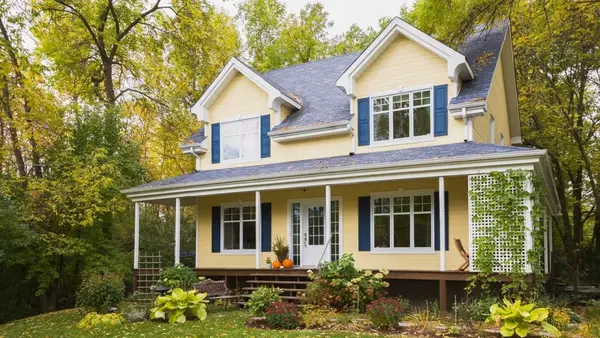Benefits of Real Estate Agents for Home Buyers

Buying a home is a significant financial transaction and for most people, one of the biggest decisions of their lives. That’s why, according to Zillow research, about 88% of home buyers use an agent to help them navigate the complicated and potentially emotional home search and purchase process. For most buyers, having an expert by your side who has your best interests in mind is a clear advantage. Why use a real estate agent to buy a home According to Zillow research, buyers who hired agents were most likely to rank the following services among the top three most valuable provided by their real estate agent: Helped decide the details of their offers (57%) Organized and submitted the paperwork associated with purchasing their home (53%) Identified homes to consider (43%) Took buyers on private home tours (43%) Led contract negotiations (43%) Gave a mortgage lender referral (34%) Gave an inspector referral (29%) Whether you're a first-time buyer or experienced in the market, understanding the benefits of working with a real estate agent will help you make the best decision for your own personal home-buying journey. Here are five advantages to know. 1. They can help you save time and money on your home purchase Agents can save you immeasurable time and energy, and potentially a substantial amount of your hard-earned cash. They can help you avoid paying too much for a house, can use negotiation strategies to get you a better deal, and ensure you are fulfilling all contractual obligations so you don’t end up in legal or financial hot water. Here’s a closer look at some of the major cost-saving benefits of working with an agent. Determine fair market value When you’re ready to put an offer in on a home, your agent should be able to help you determine an appropriate offer price, based on the fair market value of the home and market conditions. They’re up-to-date on market trends and can provide a clear picture of a home’s worth so you can stay competitive, yet also within your budget. To do this, they’ll run a comparative market analysis (often abbreviated as CMA), using comparable, recent nearby sales. Your agent can also help you adjust your offer to account for any visible issues in the home, or negotiate the home price to cover needed repairs unearthed by a home inspection. Negotiate the listing price Your agent most likely knows the local market better than you do, so they can let you know when it’s reasonable to push for a better deal. Market conditions change month by month, season by season, and neighborhood by neighborhood, and your agent should be well-versed in these fluctuations. For example, just because you’re buying in a sellers market, it doesn’t mean you won’t be able to negotiate — it all comes down to the individual home, price and seller. A skilled agent can also gain pricing insights by talking to the listing agent. For example, before you submit an offer, your agent can ask the seller’s agent how firm they are on price. They’re also skilled in navigating bidding wars, and will know if you should include an escalation clause, provide flexible closing dates or add an appraisal contingency to your offer. An appraisal contingency alone can save you thousands of dollars if the home is valued for less than your offer amount. Spot red flags You may know this feeling: You walk into a home and instantly feel like it’s “the one.” And it might be! But your agent will spot things that you might miss while wearing those rose-colored glasses. They’ve toured countless homes and have learned how to spot warning signs for expensive issues from across the room (or house), such as water damage, termites, failing roofs and beyond. This knowledge can help you avoid a home that’s more of a fixer-upper than you’re looking for, and also help you avoid inspection issues before closing. Keep the purchase on track There are dozens of deadlines and details to keep track of in a home purchase. Your agent will make sure you’re fulfilling your end of the deal, which can help you avoid costly missteps. This includes working with your title and escrow and loan officers to make sure funding is secured, as well as ensuring inspections and appraisals are scheduled within the contractual timeframe. They’ll also help the closing process stay on course by coordinating underwriting paperwork between you and your loan officer. Provide guidance for any additional costs Your agent can help you save on additional costs that come up while purchasing your home. They can recommend trusted home inspectors or other home repair professionals, legal services, financial assistance and more. Their established relationships with these providers can give you peace of mind during a stressful process — and could also result in cost savings. 2. They’re your personal co-curator and sounding board You can search most public listings, both agent-listed and for sale by owner (FSBO), on Zillow, but there likely will come a time where you have so many homes saved, you need an objective collaborator. You can send your list of saved homes to your agent, or share feedback after a tour. Since agents work with a lot of buyers like you they’ll have a good working knowledge of active listings that are likely to fit your criteria. They’ll be able to quickly make suggestions based on your must-have list, and even help you figure out where you may need to compromise based on what’s available on the market. If you’re looking for a very specific home, you might have better odds of finding it when you work with an agent. 3. You’ll get advocacy and support navigating a complex financial process The home purchase process can be overwhelming; 50% of home buyers said in a survey they cried at least once during their home buying journey. Even experienced buyers struggle to keep up with all the details. A great buyer’s agent not only spends their time understanding exactly the types of homes that fit your criteria, but they’re negotiating and drafting contracts, advocating on your behalf and generally overseeing the end-to-end process. Having an experienced agent by your side can be a relief, especially with so much money on the line. Once you’ve signed a buyer’s agency agreement with a real estate agent, they'll have a legal and ethical obligation to serve your needs, which can include: Working for your interest in the transaction Providing disclosures Offering guidance Keeping certain information confidential 4. They’re your access to professional negotiating power If you negotiate for your home purchase without experience, your passion could compromise your ability to get what you want. Agents know how to frame requests in a way that makes sellers more likely to oblige, and they can do all the negotiating while maintaining a good rapport with the listing agent and seller, which can come in handy if issues come up later in the deal. 5. They’ll be your expert guide as you navigate a home purchase contract Home purchase contracts are complex and they can include multiple contingencies — especially if you need to sell your existing home in order to buy your next one. Your agent will help you juggle disclosures you’ll want to request, like documentation on mold, lead paint and radon, and average utility bills. Agents also have tools that make signing stacks of paperwork much less tedious. In many states, agents use digital signatures, email delivery systems and mobile signing capability, so you won’t have to worry about going into an office multiple times to sign documents during the average 30-45 day escrow period. Thanks to this technology, you may even be able to complete your closing without ever leaving your home. Ready to begin your search for a new home? Search homes on Zillow or connect directly to a buyer’s agent in your area who can help you find the property of your dreams.
Read MoreWhat to Expect in Your First Conversation With an Agent

You're standing on the cusp of “Should I or shouldn't I?' and thinking about leaping into home ownership. Maybe you've visited neighborhoods, wandered through an open house or two and researched mortgage rates. You think you're ready to speak with an agent. Almost like contemplating a first date, you're a jangle of nerves. What are they going to ask me? Will they listen to me? How will I know if the agent is the right one? First, keep in mind you are not alone: Last year, half (50%) of home buyers were first-timers. A great agent is well aware of your first-timer jitters and can set you at ease as they educate, inform and ultimately help you find a home that's right for you. Here's what you need to know about that first connection. Look for the right agent You may have been directed to an agent by a referral from a friend or family member. Or maybe you met an agent at an open house or through Zillow. Or perhaps you met an agent by requesting a home tour; if so, you may have signed Zillow’s touring agreement, which does not obligate you to work with that agent beyond the home tour (requirements vary by state; read your agreement carefully before signing). Buy a Home A real estate agent can provide you with a clear breakdown of costs so that you can avoid surprise expenses. Finance a home Zillow Home Loans can get you pre-approved so you're ready to make an offer quickly when you find the right home. Sell a home No matter what path you take to sell your home, we can help you navigate a successful sale. A buyer's agent represents the home buyer in a transaction, while a listing agent represents the seller. Both buyer and listing agents are licensed professionals with legal and ethical obligations to represent their client's best interests. A good local buyer's agent will understand your pain points and use their expertise to guide you through the buying process. They're skilled negotiators; are good at managing all of the moving parts of the transaction; can help you focus your search to more quickly find the right home for you; and can recommend trusted lenders, real estate attorneys, escrow officers and home inspectors. They'll communicate with you frequently in ways that work for you — face to face, phone, email, text or even video chat. First contact — first impressions Whether you’re connecting with a prospective agent over the phone, email or otherwise, this initial foray is a low-pressure, get-know-you intro that's a smidge more than casual. You want to let the agent know why you're looking to move, the name of a neighborhood or two you might want to explore and how much you think you want to spend. Share any time constraints — you're moving for a new job that starts in three months, you want to be in a new home before your baby is born, you need to move before the beginning of the school year, etc. Remember that good relationships work for all involved parties. In this initial meeting, you'll be figuring out if you feel comfortable with the agent. At the same time, they're figuring out if they will be the best agent for you. As you talk with each agent, ask yourself: Is the agent listening to me? Do they have local neighborhood knowledge? Will they make the buying process easy to understand? Do I feel comfortable talking about my finances with them? If you can answer these questions confidently, you likely have a good fit and may want to set up another conversation. Quell your worries about money and preparedness You might be jittery about sharing your finances with someone you’ve just met. It’s an understandable concern, but your agent is primarily focused on helping you move, which means they’ll need to know what kind of budget you’re expecting to work with. While your agent can help you navigate affordability, it’s a good idea to gather the most information possible early on. You might consider talking to a loan officer at the outset of your home search to get a sense of your budget, and even to get pre-approved. Some agents will require a pre-approval or pre-qualification letter before you start touring homes, and that’s in your best interest. That way, you can quickly put in an offer if you find the house you want — and you’ll be crystal clear on how much house you can realistically afford. What if you're just browsing? That’s also okay — an agent won’t expect you to have everything figured out. A great one will help you figure out what type of house in which neighborhood will best meet your lifestyle and financial goals. If you want suburban living, they won't waste your time with city townhouse listings. Let the agent know as much as possible about what you like about homes you may have seen, e.g., a large kitchen, three bedrooms, a dog wash station, a finished basement with an in-law suite, etc. Moving forward Once you feel comfortable moving forward with the agent, you will formally sign a buyer’s agency agreement, which will outline the expectations of your working relationship. Know that you can always negotiate with your agent on the terms of the agreement. Once hired, your agent will set up in-person or video home tours depending on what works best for your timetable. You'll get into deeper conversations and begin to narrow down your needs vs. desires. (Here's a handy checklist for keeping track of your needs and desires.) And that’s only a slice of the benefits your agent will provide throughout your home-buying journey. A great agent is going to be responsive to your cues. Find the right partner and take the leap.
Read MoreHow to Hire a Buyer’s Real Estate Agent

Buying a home can be a complicated and confusing process, even for seasoned home buyers. That’s why nearly nine out of 10 buyers work with a professional real estate agent at some point during their home purchase process, according to Zillow Research. Here’s how to hire a buyer’s agent — and why it’s usually a good idea. What is a buyer’s real estate agent? A buyer’s agent is a licensed, professional real estate agent working on behalf of a home buyer. They officially represent the buyer in all aspects of their home purchase. How does a real estate agent for buyers differ from a real estate agent for sellers? A buyer’s agent represents the home buyer in a transaction, while a seller’s agent, also commonly called a listing agent, represents the seller. Both buyer’s agents and listing agents are licensed professionals who have a legal obligation to represent their client’s best interests. Can one real estate agent represent both the buyer and seller? It depends — in eight states, (Wyoming, Alaska, Vermont, Colorado, Florida, Maryland, Texas, and Kansas), it’s illegal for one real estate agent to represent both the buyer and the seller. At Zillow, we believe buyers and sellers deserve to work with an agent who is committed to their best interests and only represents them. When the same agent represents both the buyer and the seller in the same transaction, it’s called “dual agency.” Dual agency could present a conflict of interest. It would be akin to a lawyer representing both the plaintiff and the defendant in the same case — that lawyer couldn’t reasonably advocate for both sides fairly and to the fullest extent. This is why it’s important that, when hiring a real estate agent, you look for an agent whose job it is to solely represent you in the transaction — and make sure that this arrangement is spelled out in your buyer agreement (see below for more). Why hire a buyer’s real estate agent? Buyer’s agents can help you navigate the entire home-buying process, from your initial search through closing. Here are the key benefits to using a buyer’s agent: Support and advocacy: Buyer’s agents have a strong grasp on the local market and will be your partner in guiding you toward homes that fit your budget and priorities. You can share your saved homes with your agent or share feedback after you take a tour, and they'll be able to recommend potential compromises, which can be especially useful if you have a very specific list of priorities. Skilled negotiations: Your agent will help you determine a fair market value for a home before you make an offer and give their expert input on a strategic offer based on market conditions. Then, they’ll negotiate with the seller’s agent on your behalf, helping you come to an agreement on price and terms. Experience: An experienced agent can be invaluable in all phases of the process, whether it’s knowing when to expect a counteroffer or red flags in an inspection report. They are a trusted advisor who can give you honest guidance that could save you time, money and stress. Tip: We recommend checking out your agent’s profile to see their past sales and to get a sense of their experience. Professional recommendations: An experienced agent can recommend lenders, real estate attorneys, escrow officers and home inspectors they trust. If your agent and these professionals have a strong working relationship, they can often work together to streamline processes and keep the transaction moving forward. Expert guidance: From offer paperwork to contingencies to closing documents, buying a home means juggling a lot of complex forms and managing timelines. Your agent will gather documents, explain your rights and obligations under the contract terms, ensure nothing is missing, and walk you through everything that needs to be signed. How much does hiring a buyer’s real estate agent cost? All home buyers deserve transparency regarding agent fees (who is paying them and how much), and should understand those fees are negotiable. At the same time, agents should be fairly compensated for their services. Historically, agent commissions have been between 3% to 6% of a home’s sale price, usually split between the buyer's agent and the seller’s agent. However, it’s important to talk with your agent early on in the process on how much the commission is, how it will be paid, and who will pay it — which should all be outlined in a signed agreement. It’s also important to know that agent commissions are negotiable and are not set by law. When you work with an agent, you’ll typically sign a buyer agreement (sometimes called a buyer’s agency agreement), which will outline the terms of agent compensation, including how much your agent will be paid, how they’ll be paid, and what services you can expect in return. Commonly, this will involve the buyer’s agent receiving a percentage of the purchase price or a flat fee as agreed upon by the parties. Before you sign an agreement, make sure you have an understanding of how commissions are paid, the scope of services provided, and the fees applicable to your transaction. How to find and hire a buyer’s agent As with any professional you hire, you want to find an agent who is a good fit for your needs, communication styles and goals. Follow these steps to find a great agent. 1. Connect with a local agent on Zillow Connect directly to a buyer’s agent in your local market, or perform a custom search for agents by neighborhood, name or specialty. You’ll find bios, reviews, ratings and a list of past sales they’ve facilitated. It’s a great way to get a feel for an agent’s reputation. Additionally, you can contact an agent directly in the Zillow app to set up an in-person home tour. 2. Check your compatibility Talk to the agent you’re working with to make sure it’s a good fit for you to work together. Here are some important questions to ask: How many buyers in this area have you represented in the past three years? Do you work full time in real estate? How quickly do you respond to client requests? What are your working hours? Do you have any buyer’s agent credentials, such as Accredited Buyer Representative (ABR) or Certified Buyer Representative (CBR)? 3. Sign an agreement At some point within the home buying process, you’ll sign an agreement. There are a few types of buyer’s agent agreements, depending on where you are in your home buying journey, and the type of agent that you work with: Limited services agreement: If you’re just starting to look for a home, you might use a limited services agreement or a touring agreement, which outlines that you will work with the agent to tour homes. This arrangement allows you to evaluate an agent before deciding to enter into a more comprehensive buyer’s agency agreement. Zillow’s Touring Agreement, in particular, just covers touring activities and expires seven days after signing. The agreement does not require a fee, and it doesn’t bind you to work with this agent in the purchase of a home. If you want to keep working with that agent, you’ll be asked to sign a buyer agreement that specifies the terms and compensation for the additional services. Exclusive buyer’s agent agreement: This type of contract means you’re agreeing to work only with that agent for a certain period, commonly 6-12 months. Typically, the agent will be owed a commission for any home you purchase during that time, and your agreement should spell out how and how much your agent will be paid. If the seller of the home you buy does not offer a buyer’s agent commission, you might be responsible for paying your agent’s commission, so read your agreement carefully and ask questions if anything is unclear. Again, know that compensation terms are not set by law, and it’s your right to be able to negotiate any terms of the agreement with your agent. Non-exclusive buyer’s agent agreement: This agreement means you’re working with your agent, but you are also welcome to work with another agent as long as you let both agents know, and you haven’t signed an exclusive agreement with any agent. This might happen if, for example, you’re searching for homes in two different cities. Agreement requirements vary by state, so ask your agent for information on what documentation is necessary for your situation. What to look for in a buyer’s agent Your agent is not only your advocate for one of the biggest purchases of your lifetime, but will likely be working with you for months through the ups and downs of the home-buying process. This is why it’s important that you partner with someone with a complementary communication style and work ethic. In addition to a good personality match, here are some key attributes you should look for in a real estate agent. Hyperlocal expertise Every real estate market is different. Home prices, demand and housing types can vary by state, city and even neighborhood. Look for an agent who is experienced in the specific area where you’re interested in buying. You can look up their past sales on Zillow and map the addresses, or simply ask how much business they’ve done in the neighborhood recently. Strong communication skills Your agent should be a skilled communicator both with you and with other key parties involved in a real estate transaction, so they can successfully communicate your offer and negotiate contingencies with the seller’s agent. They should also be adept at working with your lender, home inspector and attorney/escrow officer. Ask them how quickly they reply to client requests or questions and what their “off hours” are. Most good real estate agents make themselves available evenings and weekends in order to help keep your purchase moving forward. Years in business and reputation Usually, an agent who has been in the industry for at least three years has a good handle on the process and a number of closings under their belts. If you choose to go with a newer agent, ask whether they have completed closings already, and whether they’re being guided by a more experienced agent. You can also read reviews to see how their clients rate them. Ready to begin your search for a new home? Search Zillow’s available listings or connect with a buyer’s agent in your area that can help you find the property of your dreams.
Read More-

Sal Cohen was living solo in a 3-bedroom house in Seattle when his daughter’s plans to build a home in a nearby city fell through. In short order, Cohen found himself with five new roommates: his daughter and son-in-law, their two energetic young sons and a friendly pit bull that lives for table scraps. For Cohen, the change was seismic. After long enjoying the run of his house, his domain shrank to just his bedroom and bath. His grandson’s toys began popping up everywhere. Meals became more lively. Suddenly, he was among the 18% of the U.S. households living in a multigenerational home. Multigenerational living, where three or more generations reside under one roof, has taken off in recent years. One study, conducted by the non-profit Pew Research Center, found that 60 million people lived in multigenerational households in 2021, four times the number that did in 1971. The number one reason people in the Pew survey cited as their “why” for multigenerational living was financial; doing so helped save money on housing costs, child care and food. While there are benefits of a more affordable living arrangement and an opportunity to deepen family connections, living with extended family is a decision home buyers shouldn’t take lightly. “I don’t think it’s for everybody,’’ Cohen says. “You really have to have the right combination of people.” Considerations around space and privacy and cohabitation-friendly layouts also can make the difference between a harmonious household and one where everyone’s nerves are frayed. Cohen knows more than most people about how a home’s layout affects the experience of daily living: for nearly 40 years, he's run his own home-building company, Homes by Sal Cohen, specializing in larger homes. Now, he's seen up close how a few floor plan tweaks — plus rules to live by — can improve the experience for multiple generations living under one roof. We asked Cohen and Hao Dang, a Zillow Premier Agent® Partner who also has first-hand experience, to share what they learned from their experiences with multigenerational living and offer some tips on the kinds of spaces that tend to work best for multiple generations sharing the same roof. The value of space Hao, who runs the Hao Dang Team in Bellevue, Washington, has sold scores of homes to clients who live with their children and parents or in-laws. “Space is the most important thing,’’ Hao says. ”With people working from home and the need for home offices, everyone wants at least four bedrooms, minimum. Most times, when you’re looking at multigeneration, it’s usually a house over 4,000 square feet.” Upsizing may seem counterintuitive in the current housing market. But the math works when you consider the cost of two households, says Hao. He reasons: A larger home with more bedrooms — or a separate 1,500 square foot Accessory Dwelling Unit for parents or adult children — would cost upward of $2 million in Hao’s market, he says. It’s an eye-popping sum, but it’s still less expensive than buying two homes in the Bellevue area, where even a 1,500 square foot rambler costs at least $1.3 million, he says. Given those numbers, housing two families in two homes would cost at least $2.6 million. When you add in savings on utilities, food, transportation and potentially thousands a month on child or adult caregiving costs, multigenerational living makes a lot of sense, he says. In the Pew survey, 25% cited adult caregiving and 12% cited child care as the chief drivers behind their decision to join households. The math may be different for every metro, Hao says, but the concept is the same: buying and maintaining one home is cheaper than two. Adding space for family could also mean future rental potential if circumstances change and the space is no longer needed. Zillow® research shows that home buyers are increasingly looking to rent out all or part of their homes, so Hao says a lot of buyers love having that flexible space. “You can certainly live all together, or live in a completely separate space,’’ he says. “If you want, you can have a friend or family live there or rent it out so that person is paying a portion of your mortgage. A lot of people really love that.” Multigenerational living home checklist Hao says he directs clients shopping for a multigenerational home to look for homes with basements, dens or bonus rooms where families can gather or go for quiet time, away from the activity in the rest of the home. His other top recommendations: Rooms with doors Open concept layouts are great for gathering, but Hao says everyone should be able to find a space where they can close a door and be alone. That’s especially true for people who work from home, and need privacy for Zoom calls. “They don't necessarily need to have windows,” Hao says, “but they should have doors so you can block out the sound. If you have multiple doors you can block off, you won't hear a person at all.” Multiple levels A bedroom and bath on the main level is ideal for grandparents, Hao says. “Ideally, there should be a bathroom on every level of the house,’’ he says. At least four bedrooms This depends on the size of the family and whether people are working from home, but if there are children, parents and grandparents, having four bedrooms gives everyone some breathing room. Hao says three bedrooms isn’t usually enough space when you have a house full of people. A basement Basements can be the ultimate getaway. A door at the top of the stairs and a door to a bedroom, office or playroom makes for a quiet escape, says Hao. Without a place to hide out for a while, the only other alternative is to leave the house. Neighborhood amenities Some multigenerational homes are in established communities and some are in newer developments where there aren’t many amenities, says Hao. “The parents want to be in an area where it’s walkable, either to stores, coffee shops or grocery stores, or walkable where there’s sidewalks to parks and so forth.” If the grandparents are going to be home with the kids, they need to be able to get some fresh air and exercise. “Besides saving money, that’s one of the more important factors,’’ he says, noting that flat terrain tends to be better than lots of hills. Parking In urban areas without good transportation, having space for multiple cars is important, especially as kids get older or caregivers come into the picture. Grandparents who are driving also need a place to park. An ADU, or an option for one Sal Cohen says he considers ADUs — separate dwellings either attached to the home or somewhere on the property — to be the perfect setup for multiple families. “An ADU can be designed so that it opens to the rest of the home and provides easy access to each other while simultaneously providing privacy,’’ he says. Ideally, the unit would have a bedroom, bath, small kitchenette and a living room/dining area. Detached ADUs can eliminate the need for an oversized home, and provide a way to build flexibility into a home, offering the potential for future rental income or living space for adult children who might return home to live with their parents. Weighing the rewards Sal Cohen’s older daughter, Dominique Cohen, says her dad’s 3 bedroom, 2.5-bath home has great communal spaces, with its upstairs office/playroom and open concept living room/kitchen that makes it easy to keep eyes on the kids while whipping up dinner. But it lacks the kind of private space that allows someone to step out of the flow, especially in a busy household with active kids. In fact, Dominique’s husband, Geoff Roach, says he initially worried about encroaching on his father-in-law’s space, and about how their relationship would evolve. “Who hasn’t had a roommate that hasn’t worked out?’’ he says. Those fears, however, proved unfounded. “I feel very grateful,’’ says Geoff. “I lost my parents when I was very young, so it’s nice to have a father figure in the house. Other people might take that for granted. I don’t. I absolutely respect him. He’s a role model.” That gets to another point about multigenerational living: while it can have its disadvantages, it can be enriching in many other ways besides financial. The Pew survey found that 57% of adults in multi-generational households reported their experiences as very or somewhat positive, while 14% said it was somewhat negative. Only 3% said it was very negative. A majority (54%) also said that living with adult relatives other than their spouse or partner was rewarding all or most of the time, with little or no stress (36%). Still, 40% described the living situation as stressful some of the time, and nearly a quarter (23%) said it was stressful all or most of the time. Stress can come from numerous factors, but Hao cites interference as being one area to consider. Having others stand witness to your choices and weigh in on them can lead to hard feelings and resentments if they’re not discussed — or discussed too much. “If you can live with your parents, I think it’s awesome,’’ says Hao. “ But, you know, they have a lot of opinions.” For instance, they may weigh in on how you’re raising your kids or the amount of hours you’re working or your dietary habits. Unless you can let things roll off your back, home life could get tense. For Sal Cohen, the upsides of multigenerational living far outweighed any downsides. Having worked long hours when his two daughters were young, he loved seeing his grandsons grow and learn new things. “It was great for me to be able to bond with the grandkids,’’ he says. “They got to know me very well and I got to know them. It’s really fun to watch them grow up.” He also enjoyed most mornings when the kids excitedly ran into his room to wake him. And then there were the shared TV shows, nightly family dinners where the adults took turns cooking and golf outings with his son-in-law. Of course, anything involving people is going to have complications, especially if there’s dysfunctional family dynamics, or if people don’t share the same values or their lifestyles are incompatible. But with healthy dynamics and flexibility, multigenerational living can help reduce life’s stresses. The key to harmonious living “Communication is number one,’’ says Geoff Roach. Keeping track of schedules with three kids and making sure everyone is on the same page minimizes conflict and the chaos of running a household with small children — ages 7, 2.5 and 4 months — and two working parents, both of whom run their own companies. Hao says clear communication helps avoid hurt feelings and resentments that can build if people’s expectations are misaligned. For example, his in-laws cooked dinner every day, so he would make sure to give them a head’s up early in the afternoon if he would be eating out so they wouldn’t feel slighted. It also helped that they shared similar philosophies about raising children. “Just having the same morals and the same upbringing, I would say, makes a world of a difference,’’’ says Hao. Although some families live together permanently, that’s not always the case. The Pew survey found that 41% of adults in multigenerational households say their living arrangement is long-term, while 34% say it’s temporary. About a fourth (24%) say they don’t know what to expect. The Cohens fell into the later category. When Dominique had her third child a year and a half into the living arrangement, Cohen opted to live on his own again in a home nearby. With space already at a premium, Cohen realized he would have even less of it with a new baby on the way. He also felt the need for private space that extended beyond his bedroom door. “It’s very noisy with two little beings,’’ he says. “It’s more chaotic and there’s more stuff in the house.” A different floor plan that included a separate living space and a small kitchen would have been ideal, he says. Now, Cohen stays connected to his family through work, baby sitting and weekly family dinners, joined by Sal’s youngest daughter, Gabrielle, and her rescue pup, Cookie. As the family joined up for a home-cooked meal on a recent Wednesday night, the kitchen filled up with the sounds of chopping, sizzling, a 2.5-year-old’s repeated questions and laughter. Says Dominique, “The number one thing that made it all work, is we’re all easy-going. None of us is stuck in our ways.”
Read More -

If you’re looking to buy a home, building a house is an excellent way to go. For starters, you get to custom-design the home, deciding on preferred specifics. Next, you could easily make adjustments along the way to guarantee a perfect end result.There are certain basic costs associated with building a house and they can be classified under actual construction costs. These are the expenses that go into the building process. There are also certain upfront costs associated with buying a home. These include downpayment, closing costs, and monthly mortgage repayments.In addition to all of these costs, however, there are other expenses that are almost never discussed during construction. These can be regarded as the cost of homeownership–ongoing expenses that you are required to pay as a homeowner beyond your monthly mortgage payments. This article seeks to highlight and detail five of these major costs:Property TaxesProperty taxes make up a significant portion of the expenses of owning a home. The specific fee is typically determined by the city, township or county where your home is located. An ad valorem tax or a system of tax based on the value of your house is used here.According to Census Bureau data, the average American pays $2,471 in property taxes with the annual median property taxes ranging from $587 (Alabama) to $8,300 (New Jersey). The average National percentage stands at 1.1% with Alabama taxing around 0.37% and New Jersey, 2.13%.Based on the percentage, Texas ranks 6th at 1.6%, implying that property taxes are quite steep. Property tax is typically paid every single month for as long as you hold ownership of the house.The table below shows the top 6 and bottom 3 states ranked based on property tax percentages according to recent statistics.Home InsuranceHome insurance sees two categories:Buildings insurance;Content insurance.Buildings insurance covers your home’s structure as well as fixtures and fittings. Furthermore, it mainly serves to protect against acts that you may be unable to avoid such as flooding, fire, and storms.Content insurance on the other hand basically covers property within the house, and that is within your discretion. Alternatively, you could get a policy that combines both.In Texas, the average cost of home insurance stands at about an annual sum of $1,863 for a home worth about $250,000. This figure is in excess of the national average and this is mainly because of the geographic location and the environmental hazards in the state.This is why getting a great insurance plan in cities like Austin, Dallas-FW, Houston involves reviewing quotes from various insurance companies and going with the best option.Below is a breakdown of the premiums offered by the 5 biggest insurance companies by market shares in Texas:HOA and Condo FeesIf your home is within a region that has an active homeowners' association (HOA) or a condominium association, paying a monthly or quarterly fee is a requirement. This fee typically covers community or general neighborhood services like snow plowing or garbage collection.There is a possibility of HOA fees rising. This may be a result of a special project such as renovating certain common areas or installation of a new security system.These fees are very specific to location. For instance:Austin sees an average HOA fee about between $400 and $800.Dallas sees a couple hundred to over $500.Houston HOA fees range from $300 to as much as $1,200 depending on building type and location.Lawn Care and LandScapingYou can either opt to hire a professional for this or take care of it yourself. However, either choice involves some fee; payment of wages or purchasing lawn equipment in either case.Lawn equipment can be quite pricey particularly if you need some specifics like a leaf blower or snow blower (for significant acreage). The importance of this goes beyond just aesthetics.Untrimmed branches and tree limbs can fall, causing damage to windows and the roof. Similarly, falling leaves and overgrown weeds can impede the flow of water in the drainage, clog gutters, affect plumbing or even tamper with outdoor HVAC units.Heating, Ventilation and Air Conditioning (HVAC) SystemHVAC systems typically deteriorate over time and would need to be replaced eventually. However, some maintenance strategies include replacing air conditioner and furnace filters regularly.Simple tune-ups in AC maintenance may cost between $75 to $200. An extended service contract which would include the entire HVAC system may cost between $150 and $500. However, for technical repairs, a HVAC technician may charge between $50 to $150 per hour.To keep your HVAC system efficiently running, yearly maintenance is recommended. You could opt for a maintenance plan or service contract that would cut back annual costs.Other CostsThese secondary costs and fees cover services like:General home maintenance costs;Utility bills (electricity, internet, and cable);Safety measures (alarm systems, motion-detector lights);Possible personal purchases for the interior (furniture, rugs).The BottomlineThe cost of owning a new build home clearly extends just beyond construction costs. Although these cost figures might be low relative to actual construction costs, adding them up sees a tidy sum. However, they are all important in their own rights, and you shouldn’t discount them.
Read More
Recent Posts











